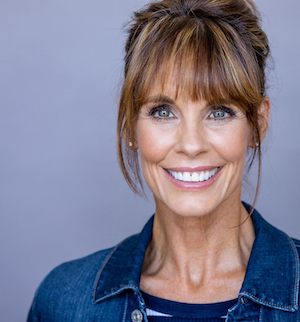
Written by Alexandra Paul
California agriculture is a source of pride for many here in the golden state, and rightfully so. We have much to be proud of as a leader in many areas of agriculture — over a third of the country’s vegetables and two-thirds of the country’s fruits and nuts are grown in California. But for some of our local elected officials, this pride has turned into blind devotion where the pursuit of profit trumps all other considerations like lowering greenhouse gas emissions, saving water, reducing air pollution and improving animal care. Take, for instance, a recent blog published by Assemblymember Devon Mathis.
Mathis claims Assembly Bill 2764, a moratorium on new factory farms and slaughterhouses, is “just another attempt to kill the agriculture industry in our state.” Actually, the bill will allow the fruit and vegetable farmers to flourish — and without the inherent cruelty and threat of pandemic that the animal agriculture sector brings.
Mathis defends the use of concentrated animal feeding operations — a.k.a. CAFOs or factory farms — as an “efficient” means of food production. The reality is that these places are only “efficient” because they force a large number of animals into unconscionably cramped conditions.
In terms of feeding human beings, there is nothing efficient about factory farming. Researchers at the University of Oxford conducted what’s considered the most comprehensive analysis of the relationship between food and the environment in 2018. The study shows that meat and dairy provide just 18% of global calories, despite using up 83% of global agricultural land.
Factory farming is the biggest drain on California’s dwindling water supply, requiring massive amounts of animal feed. There are 1.7 million milk cows in our state right now each drinking up to 20,000 gallons of water a year. The land used to grow their feed could go directly to growing grains, nuts, fruits and vegetables for people.
Mathis wants to keep the conversation about CAFOs at a very conceptual, impersonal level. And it’s no wonder, considering the brutal reality of what he’s defending. I have seen it up close myself, having witnessed that reality firsthand inside a Smithfield Foods factory farm in Mathis’ own district. Piglets languished in their feces, held in such crowded conditions that they trampled each other. The barns smelled terrible, with urine soaked concrete floors and little natural light. Many had bloody sores, wounds and infections. Each animal is pumped full of drugs to prevent an outbreak of disease, which only makes the diseases more resistant to antibiotics, creating a petri dish for brewing the next pandemic.
California voters know this is wrong: the state’s own Proposition 12 animal welfare initiative was passed with overwhelming citizen support in 2018. The industrial animal agricultural lobby, however, has challenged the bill at every level — fighting even the simplest of notions: that animals should have enough space to turn around. In their view, extra steps require more space, and expend more calories — useless “inefficiencies” in the worldview of Assemblymember Mathis.
If AB 2764 is not passed, we will look back on it in shame, at the way we treated animals, how we wasted valuable water and exacerbated climate change for the sake of cheap food. And we will look back with even more shame at the people like Assemblymember Mathis who tried to preserve these horrendous practices.
Alexandra Paul is an actress, notably starring on the TV show Baywatch, as well as an investigator with the animal rights network Direct Action Everywhere (DxE).








